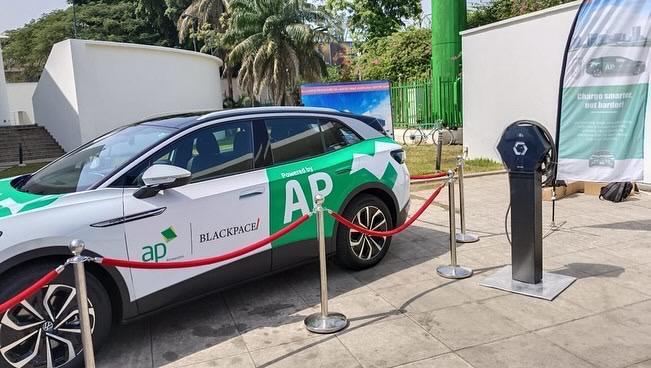
Experts said there is a need for the government to put in place proper policies and education to achieve a greener economy and scale up the electric vehicle (EV) campaign.
This is as Nigeria’s transition to clean energy in the transportation sector received a boost with the official presentation of the BlackPace Group and Ardova 100 per cent EV and FastCharger in Lagos.
The presentation saw Ardova present charging stations for EV at designated stations across the country. The charging stations, The Guardian gathered, would take about 40 minutes for a full charge of a vehicle.
BlackPace EV FastCharger Pulse 50 is the first fast charger in Nigeria. Pulse 50 will be available in select Ardova stations and locations.
The event brought together stakeholders across various sectors that are critical to transportation and energy in the country.
It also featured a panel session that discussed, ‘The sustainable development of the electric vehicle infrastructure and economy.’
Speaking at the panel, Managing Director, Ardova, Moshood Olajide, said the entry cost of EV is expensive compared to buying internal combustion engine (ICE) vehicles but the lifecycle cost has an advantage.
Olajide said EV has a significantly lower cost of ownership when compared to ICE vehicles. He said for the government to key into EV, there is a need to understand the paradigm of government. He said there is a need for proper education on the part of the government to state that encouraging EV will not disrupt the use of Compressed Natural Gas for vehicles.
He also explained that the company would be providing charging infrastructure throughout its filling stations across the country for the launch of the EV.
Partner, Infrastructure, KPMG, Martins Arogie, said the government and Nigerians needed to focus on long-term and not short-term goals.
Arogie who is positive about the EV market in Nigeria said there is a lithium market for batteries in Nigeria that is not looked into. Although he said the rate of inflation in the country is driven by currency devaluation, but “all I see for the adoption of EVs in Nigeria is positive”.
According to Chief Executive Officer, Kemet Automotive, Nissi Ogulu, there are a plethora of opportunities in the EV space for entrepreneurs. She listed the recycling of batteries alongside the potential for EV blogs.
Ogulu said instability in electricity also poses a challenge to the scalability of the EV market, stating that the government must provide proper electricity, create industrial hubs to encourage manufacturers of EV in the country.
Executive Chairman, BlackPace Group, Paul Andrew, said for the EV market to thrive in Nigeria, the government needs to take out tax paid on the vehicles, stating that such education is needed for the government to understand.
Andrew said the government also needs to create a flexible financing structure for Nigerians to own an electric vehicle.
He said the government must create favourable policies and interact with the government to see the economic impact of EV in the society.
Andrew is optimistic that Nigerians would accept the use of EVs in the country because of the cost spent on fossil fuels.
He said there are about 60 vehicles on their way to Nigeria, four already in the country.
“60 already ordered from Volkswagen and Tesla. We have 30 units in Paris and then we are bringing in more. It’s not about importing these vehicles but it is about having a local manufacturing plant in Nigeria. There is a plan in motion which is three to five years from now, which is to manufacture EV from Nigeria.
“It is a partnership with Ardova, we are using their retail outlet to put our charging infrastructure. We have the infrastructure side that supports the EV market,” he said.





